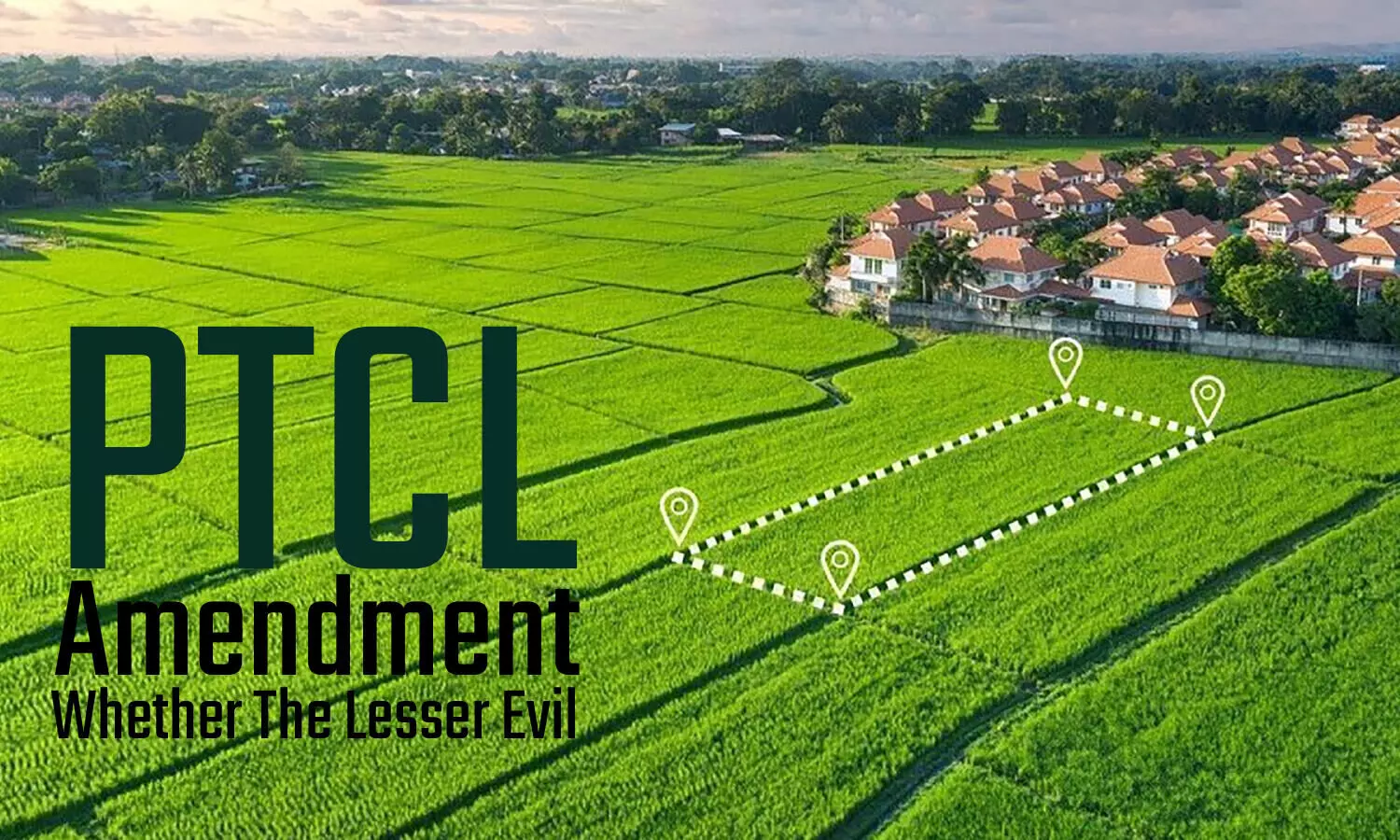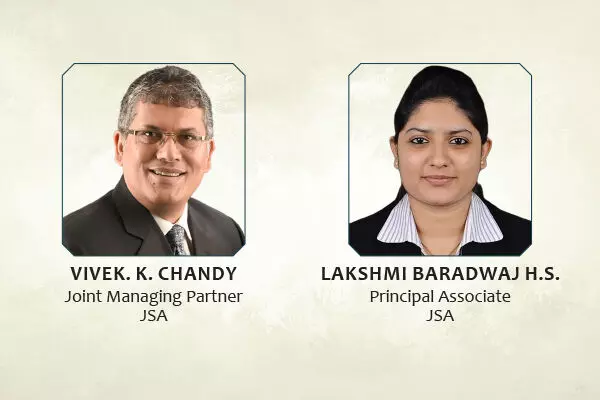- Home
- News
- Articles+
- Aerospace
- Artificial Intelligence
- Agriculture
- Alternate Dispute Resolution
- Arbitration & Mediation
- Banking and Finance
- Bankruptcy
- Book Review
- Bribery & Corruption
- Commercial Litigation
- Competition Law
- Conference Reports
- Consumer Products
- Contract
- Corporate Governance
- Corporate Law
- Covid-19
- Cryptocurrency
- Cybersecurity
- Data Protection
- Defence
- Digital Economy
- E-commerce
- Employment Law
- Energy and Natural Resources
- Entertainment and Sports Law
- Environmental Law
- Environmental, Social, and Governance
- Foreign Direct Investment
- Food and Beverage
- Gaming
- Health Care
- IBC Diaries
- In Focus
- Inclusion & Diversity
- Insurance Law
- Intellectual Property
- International Law
- IP & Tech Era
- Know the Law
- Labour Laws
- Law & Policy and Regulation
- Litigation
- Litigation Funding
- Manufacturing
- Mergers & Acquisitions
- NFTs
- Privacy
- Private Equity
- Project Finance
- Real Estate
- Risk and Compliance
- Student Corner
- Take On Board
- Tax
- Technology Media and Telecom
- Tributes
- Viewpoint
- Zoom In
- Law Firms
- In-House
- Rankings
- E-Magazine
- Legal Era TV
- Events
- Middle East
- Africa
- News
- Articles
- Aerospace
- Artificial Intelligence
- Agriculture
- Alternate Dispute Resolution
- Arbitration & Mediation
- Banking and Finance
- Bankruptcy
- Book Review
- Bribery & Corruption
- Commercial Litigation
- Competition Law
- Conference Reports
- Consumer Products
- Contract
- Corporate Governance
- Corporate Law
- Covid-19
- Cryptocurrency
- Cybersecurity
- Data Protection
- Defence
- Digital Economy
- E-commerce
- Employment Law
- Energy and Natural Resources
- Entertainment and Sports Law
- Environmental Law
- Environmental, Social, and Governance
- Foreign Direct Investment
- Food and Beverage
- Gaming
- Health Care
- IBC Diaries
- In Focus
- Inclusion & Diversity
- Insurance Law
- Intellectual Property
- International Law
- IP & Tech Era
- Know the Law
- Labour Laws
- Law & Policy and Regulation
- Litigation
- Litigation Funding
- Manufacturing
- Mergers & Acquisitions
- NFTs
- Privacy
- Private Equity
- Project Finance
- Real Estate
- Risk and Compliance
- Student Corner
- Take On Board
- Tax
- Technology Media and Telecom
- Tributes
- Viewpoint
- Zoom In
- Law Firms
- In-House
- Rankings
- E-Magazine
- Legal Era TV
- Events
- Middle East
- Africa

PTCL Amendment Whether the Lesser Evil
PTCL Amendment Whether the Lesser Evil

PTCL Amendment Whether The Lesser Evil While the 2023 Amendment may have been well intentioned so as to protect the marginalised, the GoK has in effect opened up a Pandora’s Box which will now result in an over-burdened judicial system being made to handle a whole host of new cases. To protect the interest of the marginalised, The Karnataka Scheduled Caste and Scheduled Tribes (Prohibition...
To Read the Full Story, Subscribe to Legal Era News
Access Exclusive Legal Era Stories, Editorial Insights, and Expert Opinion.
Already a subscriber? Sign in Now
PTCL Amendment Whether The Lesser Evil
While the 2023 Amendment may have been well intentioned so as to protect the marginalised, the GoK has in effect opened up a Pandora’s Box which will now result in an over-burdened judicial system being made to handle a whole host of new cases.
To protect the interest of the marginalised, The Karnataka Scheduled Caste and Scheduled Tribes (Prohibition of Transfer of Certain Lands) Act, 1978 (“PTCL Act”) was enacted. It strictly prohibited transfer of lands granted to the marginalised, without the prior approval of the Government. The PTCL Act that was given retrospective application was however silent about any specific period within which an application had to be made for the restoration of granted lands.

In a matter concerning the restoration of land, the Supreme Court in 2017 in the case of Nekkanti Rama Lakshmi v. State of Karnataka and Ors. held that an application made under Section 5(1) of the PTCL Act to restore the granted lands was to be made within a ‘reasonable period’ and an application after 25 years could not be considered ‘reasonable’ under law. The Court relied upon ChhediLal Yadav v. Hari Kishore Yadav1 and Ningappa v. Dy. Commissioner and Ors.2 and reiterated a settled position in law that “whether statute provides for a period of limitation, provisions of the Statute must be invoked within a reasonable time.”.
Subsequently, the Government of Karnataka (“GoK”) brought in an amendment to the PTCL Act in 2023 (“2023 Amendment”) concerning the time limit for making an application for restoration of granted lands to the original grantees. Through the 2023 Amendment, the GoK provided that ‘limitation of time’ would not be considered as a ground to accept or reject an application for restoration of the granted land.
While the 2023 Amendment may have been well intentioned so as to protect the marginalised, the GoK has in effect opened up a Pandora’s Box which will now result in an over-burdened judicial system being made to handle a whole host of new cases. In a large number of cases, where lands have been transferred based on the settled position of Law, matters will be opened up and the transferees of the land will now have a Damocles sword hanging over them.
In several cases people claiming to represent the marginalised will use this opportunity to extract money from the transferees who will be in a vulnerable position. Infact the 2023 Amendment is likely to benefit those who were not intended to be its beneficiaries.
The SC through its 2017 judgment has reiterated that there cannot be a law which simply states that, ‘wake up at any point of time and initiate a proceeding against a wrongdoer’. A reasonable period of limitation always exists, in the absence of a specified period of limitation in the Statute. The SC in the case of State of Punjab v. Bhatinda District Co-op Milk P. Union Ltd.3 also held that:
Even though, many State Governments in India have protected the marginalised and taken steps to prevent alienation of lands granted thereto, in most cases applications for the resumption of land are not being allowed where they are not being made within a reasonable period.
“It is right that if no period of limitation has been prescribed, the statutory authority must exercise its jurisdiction within a reasonable period. What, however, shall be the reasonable period would depend upon the nature of the statute, rights, and liabilities thereunder, and other relevant factors.”
Even though, many State Governments in India have protected the marginalised and taken steps to prevent alienation of lands granted thereto, in most cases applications for the resumption of land are not being allowed where they are not being made within a reasonable period. The Courts in India have time and again maintained the importance of espousing ones rights within a reasonable period and have constantly tried to balance the rights of various stake holders.
Though, we are not aware of any proceedings questioning the constitutionality of the 2023 Amendment, pursuant to the 2023 Amendment, the Karnataka High Court in the case of Jayalakshmi and another Vs. the Deputy Commissioner, Tumakuru District and others4 rejected a request to restore land where the application had not been made within a reasonable period. The decision of the Karnataka High Court followed the 2017 decision of the Supreme Court and did not consider the 2023 Amendment, even then the same did not expressly declare the 2023 Amendment unconstitutional. This has compounded the uncertainty and is certainly going to result in a lot of litigation until the matter is finally settled by the Supreme Court. The concern is whether in seeking to ostensibly protect the marginalised, the GoK has caused more harm than it has done good.
Disclaimer – The views expressed in this article are the personal views of the authors and are purely informative in nature.
2. (C.A. No. 3131 of 2007, decided on 14. 07 2011)
3. MANU/SC/ 8017/2007
4. WRIT APPEAL NO. 844 OF 2023 (SC/ST) Dated:03-08-2023


